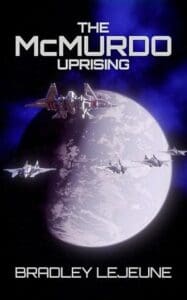Rating: 8/10
Synopsis
From the author of the thrilling science-fiction epic Children of Time,
winner of the prestigious Arthur C. Clarke Award.
Christopher Paolini described Adrian Tchaikovsky as ‘one of the most interesting and accomplished writers in speculative fiction’.
Shards of Earth is the first high-octane instalment in the Final Architecture trilogy.
The war is over.
Its heroes forgotten.
Until one chance discovery . . .
Idris has neither aged nor slept since they remade his mind in the war. And one of humanity’s heroes now scrapes by on a freelance salvage vessel, to avoid the attention of greater powers.
Eighty years ago, Earth was destroyed by an alien enemy. Many escaped, but millions more died. So mankind created enhanced humans such as Idris – who could communicate mind-to-mind with our aggressors. Then these ‘Architects’ simply disappeared and Idris and his kind became obsolete.
Now, Idris and his crew have something strange, abandoned in space. It’s clearly the work of the Architects – but are they really returning? And if so, why? Hunted by gangsters, cults and governments, Idris and his crew race across the galaxy as they search for answers. For they now possess something of incalculable value, and many would kill to obtain it.
Praise for Adrian Tchaikovsky:
‘Enthralling, epic, immersive and hugely intelligent’ – Stephen Baxter on Shards of Earth
‘He writes incredibly enjoyable sci-fi, full of life and ideas’ – Patrick Ness
‘Brilliant science fiction’ – James McAvoy on Children of Time
Review
Shards of the Earth is a brand new world entering into the Sci-Fi Realm. It’s the fantasy equivalent of worldbuilding only in the Sci-Fi Realm. There are new worlds, new civilizations, new peoples to deal with. The premise is simple. Once upon a time, there was Earth, and Earth decided to colonise the world. Okay, so that’s step one done. Then Earth’s colonies became off-shoots of each other, extending like a tree. Each Earth colony on various planets and worlds formed their basis and separate identity. These colonies became far-flung settlements of colonization, and just as history goes to prove, these colonies then form their agendas. They are the worst architects in all of human history.
That’s the basis for this world in a nutshell. This is hard sci-fi to understand, and many times I did struggle to keep up with the story because this is the first book in the series. Any sci-fi world takes time to get through. I took plenty of notes to make sure I didn’t get lost in the novel. Because you have to appreciate just how much time, effort, and value went into creating this world. You don’t just wake up one morning and decide to create a world like this, you spend years working on something as big as this. The story I feel is in a conundrum in some areas, for example, some action scenes were reminiscent of Star Wars. On the other hand, it felt like an episode of the Expanse with a heavy emphasis on realism. In another way, there was a certain vibe with the Hunger Games, as I felt that the Intermediaries aren’t seen as real humans, just objects of the instrumental divine will be used against secret aliens. On top of that, the world was introducing new characters, new worlds, and it felt like the story wanted to be all in one. Which it certainly does in the climax, because I can tell you one thing. The latter half of this book felt like I had watched the Expanse Season 4. I won’t say much but it’s a hint. I feel like this book needs to be adapted into an Amazon Prime or Netflix show or even a video game made by Obsidian Studios. Because this book is written in an episodic format combined with epic worldbuilding. I could see what was happening and what was formulating in my mind when I read this.
The characters in this novel are strong enough to stand out on their own. Idris, for example, has his personality, along with Solace (One of the Partheni), Kris, the lawyer aka the badass, and Oli, who is one of the most under-rated characters in this novel. I also loved Captain Rollo, he was delightful to read. If it’s one thing about Rollo, he can see the future ahead. Let’s talk about the Partheni for a second. The Greek mythical influence of the Amazonians is present with their name: The Parthenon. One of the things I love about Sci-fi is when I read humans giving ancient names to their ships, race and culture. It proves just how relevant ancient history is to humanity. Solace is a Partheni warrior, but she’s just a good soldier that obeys orders, and I disliked her because she did not go beyond questioning orders, she never tried to do much, and to be honest, this mirrors real life. There will be soldiers that will work for organisations that never question their motives. The Parthenon however, are a powerful organisation, having the finest warships against anything that the alien civilisations could throw at them. But the Colony has the Ints. Except that Idris participated in the first war against the Architects, but now that he’s woken up, he’s an older, more experienced man, but he has not lost his youth. But he is now older than anyone in the crew of the Vulture God. Now that Idris and Solace are on the ship of the Vulture God, they become trapped in something much bigger than them.
Here is an interesting point: The Partheni aren’t viewed as real humans, being an only female society by the other residents of the colonies. And thus, the Nativists, who call themselves ‘real humans’ are against grown human beings in a laboratory. Ironically, the very definition of racism can be turned into anything. It just goes to show that racism is just jealousy disguised as hate. It stems out of insecurity. Partly, every conflict in this world is stemming out of insecurity and nothing more. You don’t need to know the history, not even the origins of this world, just know that humans are afraid of home-grown human beings in a laboratory, insect-like aliens, moon-like giants, some race having their cultural identity to be identified with ‘Original’ or something like that. Humans are afraid that they are no longer on top of the food chain. With Earth gone, what else do they have but the Colonies? Insecurity. Insecurity and miss-communication is a primary drive going on here at the heart of this story. The Nativists create intense conspiracy theories as to why humans don’t run the universe. It’s as simple as that.
Idris and the crew of the Vulture God embark on one of the most epic journeys ever taken in my opinion, in a sci-fi novel. Sci-Fi is something I appreciate rather than read, because creating new worlds, new identities, new races, is hard enough to do for any author. Even the best of the best struggle with it sometimes. No one is perfect in Sci-Fi or fantasy for that matter. What I do appreciate is that Sci-Fi shows the true mirror of what humanity is. Because it’s true when we create new worlds like we will one day, when humanity goes to space and starts terraforming planets and does all of this, what then will happen to the human race? Will it be like Kali-Yuga as described in the Hindu Epics? Will it be Armaggeddon once Earth is destroyed when we come into so-called contact with aliens? What will happen? The truth of the matter is the human race is confused and afraid. That’s it. And Idris and his crew are also afraid, in fact, many times because they hold secrets that scheming politicians, mercenaries and bandits, gangsters, and plenty of cults are going to find them for to get an artefact of such incredible value, that it may be the very key in protecting some crucial aspect of this world.
This book is begging to become an adaptation of a great sci-fi show in the making. It is extremely well written, and it is a great novel. I enjoyed this, and this is a solid 8/10.

![Shards of Earth (The Final Architecture Trilogy Book 1) by [Adrian Tchaikovsky]](https://fanfiaddict.com/wp-content/uploads/2021/08/51QRc7D5UUL.jpg)


Great review, I’m so glad you enjoyed it!
thanks! np?